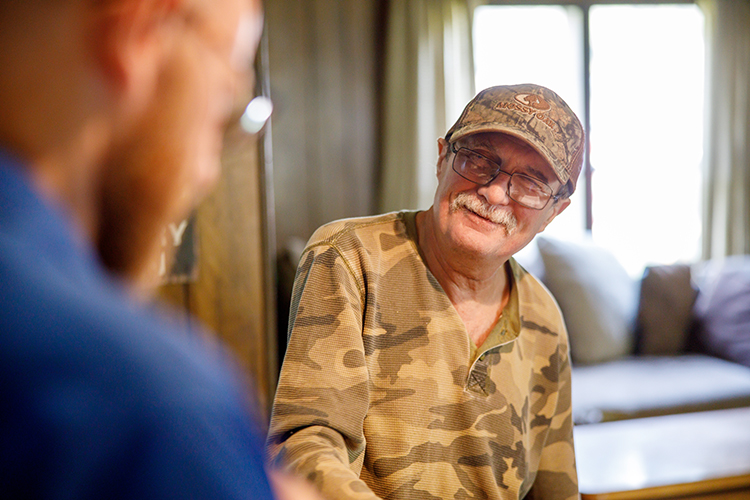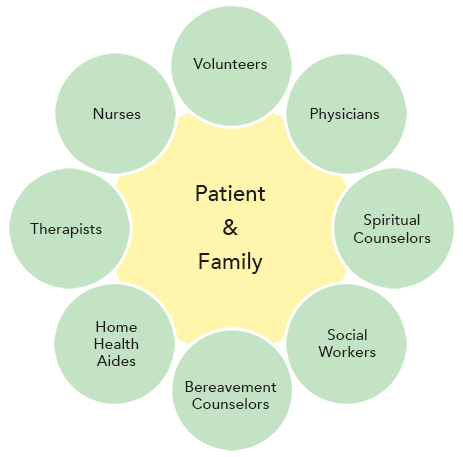Hospice Care
Hospice is about caring for you wherever you’re most comfortable. It’s about spending time being with the people who mean the most to you, doing things you enjoy.
Hospice care is a Medicare benefit that is available to people in the final months of their lives. But currently, about half of patients die within the first three weeks of being on hospice. One of the most common things families tell us is, “I just wish we had called you sooner.” Remember, you can always choose to stop receiving hospice care.
 Hospice care follows a unique model that is rooted in the idea that you are a human being, not a patient. It uses a whole team of experts to care for your physical, emotional, spiritual, and practical needs. They can help you get medical equipment for your home, manage symptoms like pain or anxiety and even help with errands and household chores.
Hospice care follows a unique model that is rooted in the idea that you are a human being, not a patient. It uses a whole team of experts to care for your physical, emotional, spiritual, and practical needs. They can help you get medical equipment for your home, manage symptoms like pain or anxiety and even help with errands and household chores.
A survey showed that the #1 concern Americans have about their death is the impact it will have on loved ones. One of the most important aspects of hospice care is providing grief support to families after the death of a loved one. Choosing hospice care means looking out for yourself and the people you love.
How Hospice Care Works
 Our hospice services are provided on a scheduled basis by the hospice team, which includes your own physician and/or the hospice medical director, nurses, social workers, spiritual care counselors, home health aides and trained community volunteers. If there’s an emergency, we come to you. Emergency care is available 24 hours per day, 7 days a week. We are always just a phone call away.
Our hospice services are provided on a scheduled basis by the hospice team, which includes your own physician and/or the hospice medical director, nurses, social workers, spiritual care counselors, home health aides and trained community volunteers. If there’s an emergency, we come to you. Emergency care is available 24 hours per day, 7 days a week. We are always just a phone call away.
Our services include:
- Skilled, compassionate care from hospice nurses and hospice aides both of whom make intermittent in-home visits.
- Management of pain and other physical symptoms through the appropriate use of medications.
- Training, teaching and skill-building for caregivers.
- Emotional support and spiritual counseling for the patient and family (if you choose them).
- Social work/family support services.
- Physical, occupational and speech therapies.
- Companionship and household assistance visits provided by dedicated, trained volunteers.
- Bereavement services are available to families for up to 13 months after hospice services are no longer needed. Additional support is available on an ongoing basis.
